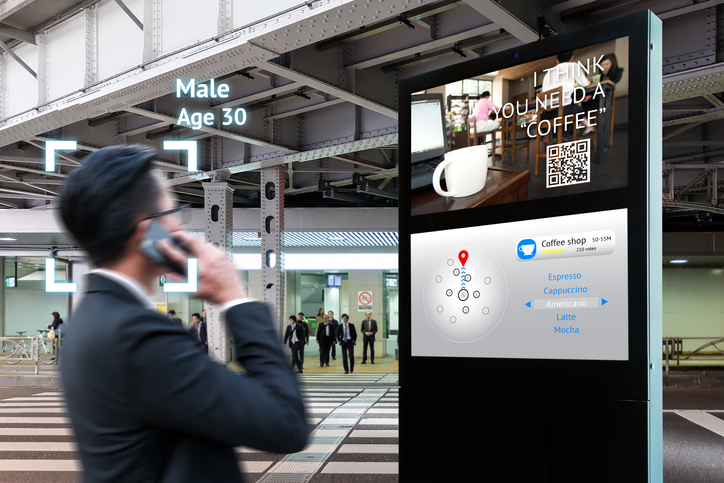The catchall phrase of Artificial Intelligence (AI), is shaping up as a defining technological trend for 2019. So what’s behind the hype and what does it mean for the profitability of your retail business?
Despite any initial misgivings, as more of us are chanting “Hey Siri/Google/Alexa,” a version of AI is making inroads into our life every day. This introduction has seen differing degrees of success – In one rather bizarre story, an AI assisted device started playing loud party music in the early hours of the morning, while its owner was away.
Neighbours called the police who then broke into the home to turn off the music, but they then had to replace the locks – leaving the owner unable to enter his own home when he returned!
So how do retailers take advantage of this change without experiencing similar teething issues? AI fuelled recommendation engines on platforms such as Amazon and Book Depository have been here for a while now. AI is also being used to integrate business intelligence and customer relationship management software (CRM) – providing real-time information to sales assistants on the shop floor, as well as business decision makers. By integrating what a retailer knows about the shopper, based on past online behaviour for example, with what the shopper tells the sales associate, AI can help you seal the deal and secure recurring subsequent sales.
The retailer’s ultimate sidekick
AI isn’t a new concept – indeed, some say its storytelling roots go as far back as ancient Greece. In the 80s for example, companies started to more widely use decision support systems and as complexity began to increase across business, more uses were identified to streamline everything from sales to stocktaking.
Using AI in retail simply requires a solid understanding of what it can do for you. When it is strategically built into your CRM and enterprise resource planning (ERP) applications, AI can be trained to become the retailer’s ultimate sidekick.
There are four types of analytics that underpin the maturity of AI systems. Descriptive analytics tell us what has happened within the business, while diagnostic analytics describe the why of what has happened. Where it gets interesting for retailers is in predictive analytics – presenting the crystal ball many of us wish we had! Building on predictive analytics is cognitive analytics, which will tell a business what it should do next.
The final two come together in systems that are best described as ‘augmented intelligence.’ This assistive role that AI can play in helping humans perform better and make superior decisions is exciting.
To create augmented intelligence, AI systems need training. AI on its own isn’t very smart – it relies on comparing and contrasting pools of data to find connections that may not be obvious to a human observer. What retailers want is an AI system that provides an insight that the user could not rapidly identify themselves. To gain a first to market advantage, retailers need to see trends that their competition does not.
By training an AI system over time with business data – sales information, orders, consumer habits, buying and seasonal patterns and so on – a retailer can build a system that truly underpins solid, human decision making.
Up close and personal with customers
An AI system, fed with the right data helps you better understand the wants, needs and desires of your buyer – increasing your revenue opportunity. Critically, this information also supports your business decisions about the inventory you need to stock and the orders you must place with suppliers. This increases your efficiency and ultimately improves the experience you offer your customers.
Retailers can also benefit from AI as it’s used to analyse customer sentiment in real-time, as well as draw on third party external data relevant to your target consumer – providing decision support for promotions/sales/special offers. Understanding the consumer allows you to clearly show them that you have their interest front of mind – increasing their loyalty to you.
Another area where AI can work for you is through the provision of chatbots and virtual assistants. These AI tools can provide better, faster customer service and typically improves sales by rapidly answering common questions about products/services and recommending an immediate path of action to the consumer.
The crystal ball retailers need
AI’s lifeblood is data – lots of it! To introduce AI into your retail organisation, you must maximise the collection of structured and unstructured data for the AI to analyse and then provide actionable information for management.
This data should include sales information, buyer sentiment and also include external data such as, weather and local events which may impact the sales of specific items. Armed with this, your AI system can discover new correlations and trends and then make rapid recommendations to assist your sales leaders.
It’s very important to clearly define your objectives for your AI projects and ensure that you track your results against (you guessed it) data! A trusted IT partner can share the experiences from others in your industry and working together you can identify specific opportunities to increase your business results.
It is also critical to ensure your data is being continuously monitored – the absence of appropriate data hygiene can significantly limit success. As you train your AI with this clean data, you will build a solid foundation for scaling AI systems to support the growth of your business.
As most industry experts say, AI is the investment retailers should explore further in 2019 to remain competitive, maximise sales and increase customer loyalty. AI has the potential to transform how you do business and with the right foundation work and training, your business will be ready to take advantage of every benefit.
Chad Gates is the Managing Director at Pronto Software

